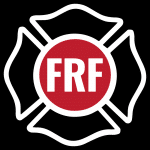Is IM Fasting Good for Firefighters, EMT’s and Medics?
FRF (Fire Rescue Fitness) was created to help transform, motivate, and educate firefighters, EMTs, and medics to get "fit for duty." One of the things I truly enjoy is researching creative ways to do this! Along with researching fitness, I am also a firefighter (like you) so. I understand how difficult it can be to work out regularly and eat healthy on our schedule and with the fire service culture. One thing I have been experimenting with and researching lately is a new eating pattern that I think can have some great benefit to fire rescue athletes.
Have you heard of intermittent fasting? Intermittent fasting (IF) is a term for an eating pattern that cycles between periods of fasting and eating. It is an eating pattern and does not address which foods you should eat, but rather when you should eat them. In this respect, it is not a "diet" in the conventional sense. It is more accurately described as an "eating pattern."
Fasting? For firefighters? Humans have actually been fasting throughout evolution. Sometimes it was done because the food was not available, and it has also been a part of major religions, including Islam, Christianity, Judaism, and Buddhism. When you think about it, our hunter-gatherer ancestors didn't have supermarkets, refrigerators, or food available year-round. Sometimes we couldn't find anything to eat, and our bodies evolved to be able to function without food for extended periods of time. If anything, fasting from time to time is more "natural" than constantly eating 3-4 (or more) meals per day.
Before you write it off, take a look at "why" intermittent fasting may be a good option. When you fast, several things happen in your body on the cellular and molecular levels. For example, your body changes hormone levels to make stored body fat more accessible. Your cells also initiate important repair processes which as firefighters can help combat all the toxins we are exposed to.
Here are some possible positive health effects of intermittent fasting:
- Intermittent fasting can reduce oxidative stress and inflammation in the body. Studies show that intermittent fasting can reduce oxidative damage and inflammation in the body. This should have benefits against aging and the development of numerous diseases.
- Intermittent fasting may be beneficial for heart health. Sudden cardiac arrest and heart disease remain to be one of the top killers of firefighters. It is known that various health markers (so-called "risk factors") are associated with either an increased or decreased risk of heart disease. Studies show that intermittent fasting can improve numerous risk factors for heart disease such as blood pressure, cholesterol levels, triglycerides, and inflammatory markers.
- Intermittent fasting induces various cellular repair processes. When we fast, the cells in the body initiate a cellular "waste removal" process called autophagy. This involves the cells breaking down and metabolizing broken and dysfunctional proteins that build up inside cells over time. Increased autophagy may provide protection against several diseases, including cancer and Alzheimer's disease.
- Intermittent Fasting May Help Prevent Cancer. Cancer is a terrible disease and will soon be the number one killer of firefighters. The instances of cancer are higher for firefighters, EMTs, and medics due to the stresses of the job. (Learn how to give cancer "the finger," CLICK here). Fasting has been shown to have several beneficial effects on metabolic and cellular processes that may lead to a reduced risk of cancer.
- Intermittent fasting increases human growth hormone levels. When you fast, insulin levels drop and human growth hormone increases. The levels of growth hormone skyrocket, increasing as much as 5-fold. Insulin sensitivity improves and levels of insulin drop dramatically. Lower insulin levels and higher growth hormone levels increase the breakdown of body fat and facilitate its use for energy. This has benefits for fat loss and muscle gain, to name a few.
Intermittent fasting has been very popular for many years and several different methods have been used. All of them involve splitting the day or week into "eating periods" and "fasting periods." During the fasting periods, you eat either very little or nothing at all (you can drink all the water you want though). Then, you eat you good (clean) nutrients during the eating period.
These are the most popular methods for fasting patterns:
- The 16/8 Method: This involves skipping breakfast and restricting your daily eating period to 8 hours, for example from 1 pm to 9 pm. Then you "fast" for 16 hours in between.
- Eat-Stop-Eat: This involves fasting for 24 hours, once or twice a week, for example by not eating from dinner one day until dinner the next day.
- The 5/2 Diet: On this method, you only eat 500 calories on two non-consecutive days. Then, eat normally the other 5 days.

I've personally found the 16/8 method to be the simplest, most sustainable, and easiest to stick to. It is also the most popular. I think it is a great option for firefighters, EMTs, and medics. I try to fast 2-3 times per week. All I will do is finish dinner at the firehouse and then not eat anything after dinner. My shift ends at 7 am, I'll head home and skip breakfast then eat from noon until 8 pm.
By fasting after dinner at the firehouse, I am less tempted by all the sweets, I just stay out of the kitchen. I also have discovered that I get a little burst of energy mid-morning and have seen a decrease in my body fat. Currently, I am only fasting 2 or 3 times a week and I don't start a shift in a fasted state. I only do this as I come off a shift.
Intermittent fasting is not something that anyone necessarily needs to do. It is just one of many lifestyle strategies that can improve your health. Eating real food, exercising, and taking care of your sleep are still the most important factors to focus on. If you don't like the idea of fasting, then you can safely ignore all of this. Just continue to do what works for you.
How to Start
Chances are that you've already done many "intermittent fasts" in your life. If you've ever eaten dinner, then slept late and not eaten until lunch the next day, then you've probably already done a 16+ hour fast. Many people actually instinctively eat this way. They simply don't feel hungry in the morning. As I mentioned earlier, I follow the 16/8 method periodically and think it is the simplest and most sustainable way to do intermittent fasting. I recommend that you try that one first.
If you find that it is easy and you feel good during the fast, then you can try moving on to more advanced fasts like 24-hour fasts 1-2 times per week (Eat-Stop-Eat) or only eating 500-600 calories 1-2 days per week (the 5:2 diet).
Another approach is to simply fast whenever it is convenient. As in, skip meals from time to time when you're not hungry or don't have time to cook. There is no need to follow a structured intermittent fasting plan to derive at least some of the benefits. I recommend that you experiment with the different approaches and find something that you enjoy and that fits your schedule.
At the end of the day, there is no one-size-fits-all solution in nutrition. The eating plan for you is the one you can stick to in the long run. Intermittent fasting is great for some people, but not others. The only way to find out which group you belong to is to try it out. If you feel good when fasting and find it to be a sustainable way of eating (like I do), then it can be a very powerful tool to lose weight and improve health.

Frequently Asked Questions About Intermittent Fasting
Here are answers to the most common questions about intermittent fasting.
1. Can I drink liquids during the fast?
Yes. Water, coffee, tea, and other non-caloric beverages are fine. Do not add sugar to your coffee. Small amounts of milk or cream may be okay.
Coffee can be particularly beneficial during a fast because it can blunt hunger.
2. Isn't it unhealthy to skip breakfast?
No. The problem is that most stereotypical breakfast skippers have unhealthy lifestyles. If you make sure to eat healthy food for the rest of the day then it is fine.
3. Can I take supplements while fasting?
Yes. However, keep in mind that some supplements (like fat-soluble vitamins) may work better when taken with meals.
4. Can I work out while fasted?
Yes, fasted workouts are fine. Some people recommend taking branched-chain amino acids (BCAAs) before a fasted workout. I do not recommend working on-shift in a fasted state, in case you get called on that 8 hour fire call...
5. Will fasting slow down my metabolism?
No. Studies show that short-term fasts actually boost metabolism. However, longer fasts (3 days or more) can suppress metabolism.
Nutrition can be confusing. Every FRF Workout program includes Healthy Eating Guides and Recipes. These guidelines are easy to follow and will help teach you how to eat healthily. Click here to discover the best program for you to start with.

Resources


Has anybody else experienced headaches toward the end of a fast? I didn’t get them at first but the last few times I’ve fasted I’ve gotten terrible headaches toward the end
Sometimes I do. It can happen at first. If it gets really bad, try to shorten the fast. Lots of water can help.
zam